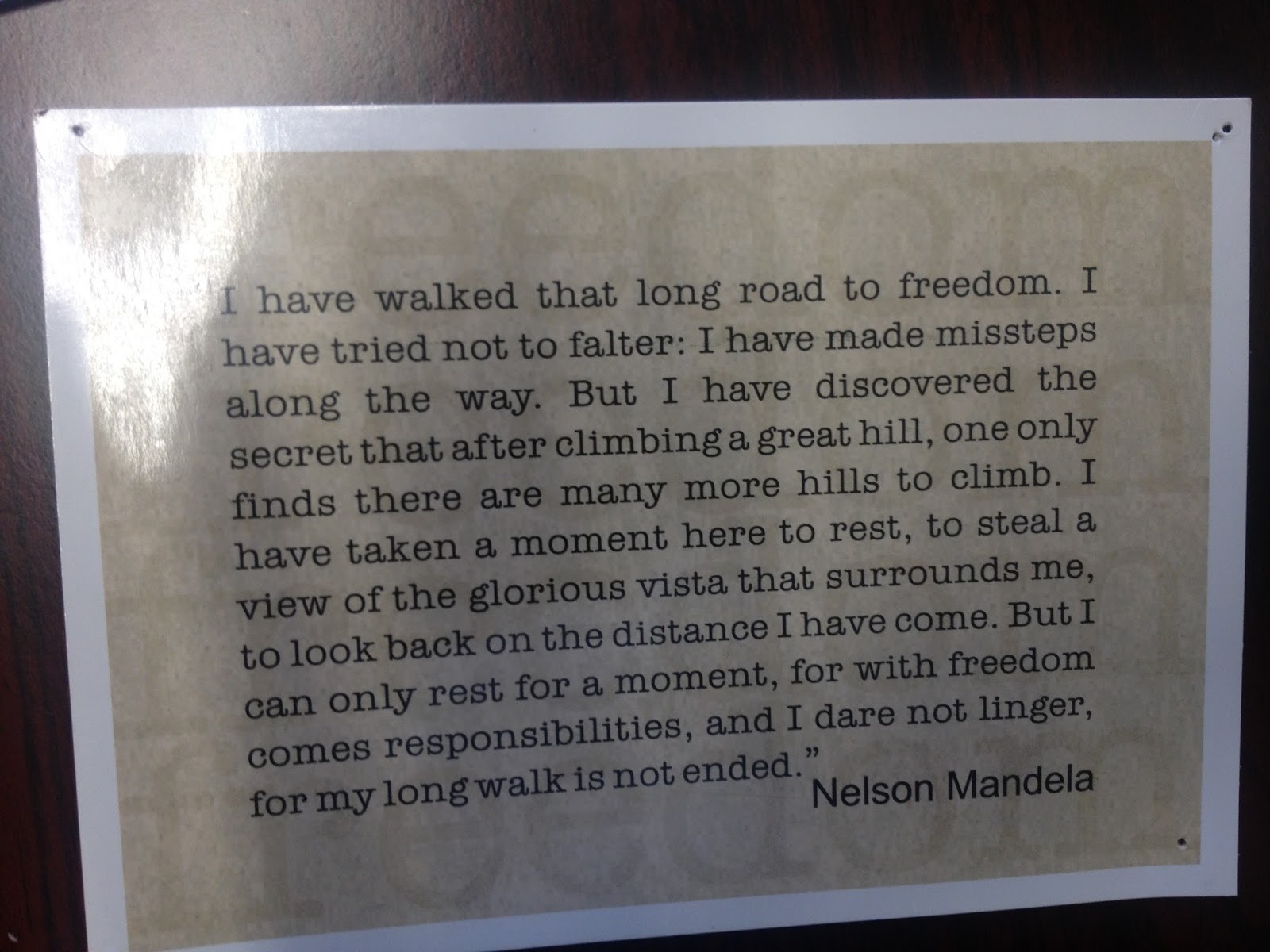Week 25- final reports and goodbyes...
 |
| Maxime and I on our way to the airport- even his last few hours were an adventure, African-style. |
June 24- Just as I was finishing up my last week at UJ, my
neighbor from the guesthouse, Maxime, was flying back to Paris. Maxime had
become like a brother to me- the type of brother I could talk/learn about
politics with and someone who understood the reality of TIA (this is Africa).
Because I didn’t have a car for a moment, I could empathize with his personal
“prison” (not leaving the guesthouse except to go to the university), so I would
take him out and about when I could (and he wasn’t studying). He was there to
hear about my day, to share an occasional powercord for the Mac, and I was even
able to edit an email (I didn’t take out some of the more precious English
Language phrases). He would join me for dinner out when I was too tired to cook
and understood the power of complimenting my cooking (more food offered). That
Monday I was a bit sad to see him off at the airport because he had become a
part of my day and living in the guesthouse. We made it safely, and after a
near heart attack (getting stuck in an elevators…and TIA), he returned to
France. Maxime will do brilliant things in this world…I am proud to be his
friend, mentor, and "sister."
 |
| My UJ experience (clockwise): view from school of education, student research groups, view from my office of cooling towers with bird, Orlando Stadium, and mini-buses/combies (center) |
June 25- So much of my last week was full of writing,
typing, backing up, and making sure the information I had worked so hard on was
passed on so the work could continue. I worked on the binder of information
(hard copy) for the UJ Early Childhood Education/Foundation Phase program,
completed reports for the Fulbright, and finalized materials for the local
schools I had worked with over the last few months. Much of my work was taking the materials, lectures, feedback, and reflections I had completed over the last six months and making the information accessible to anyone. Some of the major topics (in additions to the ones I went over in earlier blog posts) was literacy, critical thinking, collaboration, and inclusive practices.
 |
| My drive to work...two tires blew on my rental about 3/4 mile from this gas station (in the dark)...but luckily I had students with me!!! |
Literacy- Literacy is the ability to read and write. At the university, the need for student-teachers to increase their English literacy skills seems to stem from the language challenges students faced (due to the 11 official languages). For example, many students at UJ education program were not raised speaking English, they do not necessarily use English in their conversations so their vocabulary skills may be lower, and although they all passed their matric test (high school exit exam), the accepted low scores allowed for a lack of literacy skills in English. This being said, all of the students would be future teachers and needed to increase their skills. I recommended professors and lecturers work at increasing students vocabulary through morphology, explicit vocabulary instruction, reading instruction, and more opportunities to write (more than one draft). One area I really noticed the deficits was when I was teaching the classes on Reading. In the Harry Potter book activity, many of the students were not able to identify supporting details or critically think about the topics. When teaching reading assessment, I realized that many of the students would score at the frustration level and if students are at the frustration level, it is harder for them to access the curriculum. I recommended the faculty find work that is at the instructional level and move students up rather than continually create classes that were above the ability level of students. It seemed like they were not writing enough, nor were they using services available to them (tutors, writing center, etc). By accessing services, the students could potentially increase their literacy levels, and in turn, they would be better teachers for their future students (maybe even better teachers than they had in their educational experience).
In schools, teachers were begging for assessments they could use to determine students' levels. They wanted to meet the needs of the students (CAPS and ANAs- standards and assessment testing), but they were not equipped with the skills to assess a student who was not on level with the rest of the class, so they just continued on with the scheduled lessons. Literacy skills need to be taught in the schools as well as the university teacher training programs.
 |
| UJ students reports on interventions |
Critical Thinking- Both at the university and the schools, teachers were talking about the students lack of critical thinking skills. I noticed the frustration at the lack of depth in assignments but when I reviewed the assignments I also noticed the vague instructions. In my experience in teaching, most learners will give you what you ask for- whether it is thoughtful or not. Working with educators on learning how to create critical thinking prompts and develop ideas with detailed supports came in handy here. At the university I joked that preservice teachers could quote Vygotsky but they were not able to discuss how to integrate the theory of the zone of proximal development into their lessons. I think we, as educators, often forget how to bring the theory down to the practice level. Also, we want critically reflective journals of teaching experiences, however, we don't explain what factors to examine in a classroom.
 |
| Solar Panels on the Government Housing in Soweto (I guess they could power tv and small refrigerator) |
Collaboration- Many people comment on how much work I am able to produce in a short amount of time. I have to admit much of this is because I collaborate with others. If I can't find a document, I send out an email blast asking if someone else has one. At schools, I try to be creative with the staff members who are available to support students and train them on how to assess students and record data. One of the schools had multiple Non-Government Organizations (NGOs) working with them, and when I spoke to the NGOs, they told me they were not sure what to do...I trained the NGOs to assess learners' literacy so they could be effective with time and support.
Parents and community can be difficult to work with in South Africa. Culturally speaking, many families believe it is the schools' job to educate, and they voice their opinions to school staff. By scaffolding work for students, reaching beyond the traditional "show your mom or dad you ____", schools can utilize the community members supporting kids in their educational success. Sometimes it is not about following the perfect model, rather it is creating a positive model. Students trying to read a book they are struggling with at home get lost, but having a student master reading a book and sharing that with their parent or support person is exciting for the students.
 |
| A man pulling recycling in Soweto |
Inclusion and inclusive practices- Many South African educators were not sure what inclusion meant for their school. They tried to fit their current model into inclusion, they talked about how it wouldn't work. They complained about hours/students/CAPS/ANAs/students' home life/behaviors/etc. My goal was not to change the system, rather I tried to inspire educators to learn strategies and skills they could use to make teaching diverse students more manageable, find ways to collaborate with others, assess students' abilities, and increase student interactions and quality of their work. Much of this, at both the university and school levels, seem to point back to positive behavior intervention strategies. Students need to learn how to learn, teachers need to encourage development through safe environments and increased self-esteem (someone who feels like they can do it, usually does). In my seminars and classes, I did my best to give explicit strategies and interventions. When I noticed there was more I could do, I took the time to provide additional supports. I think there is a long way to go...but there are also educators in South Africa who are willing to put the time, effort, and inspiration that are needed for a positive inclusive educational experience for ALL students.
 |
| Dr. Ragpot and I at our Italian Dinner in Melville |
Because I got to work
before 8am and left after 6pm, I wasn’t able to go grocery shopping, luckily my
friends and colleagues treated me that week. Thiago and I went to Southern Sun
on Tuesday, my colleague Dr. Ragpot took me for Italian food on Wednesday
followed by a birthday party with Davies in Melville, and on Thursday, a bunch
of the ex-patriots met for an InterNations networking event.
 |
| The Lovely and Intelligent Kamagelo took me to a traditional lunch (green intestine) at the Mall in Soweto |
On Thursday, the UJ staff held a luncheon for me. With some
help from Kamagelo (student “volunteer”) I was able to finish getting the
binder put together (with color-coded tabs) and present the information to the
staff. Some of the topics covered in the binder included literacy, critical
thinking, staff support, and recommendations for the future.
On Friday, I packed up my office and Kamagelo took me to a
restaurant in Soweto that serves intestine (I did say I would eat the local
cuisine). It seemed so strange to be driving away from UJ for the last time…at
least for this trip.
That weekend Thiago, Monique, Talquin, and I stayed busy
around Joburg…starting with MishMash in Greenside (outdoor fire pits- remember
it is winter here), Neighborgoods for brunch, and ending on Sunday at Park
Acoustic, an outdoor rock concert in Pretoria.































